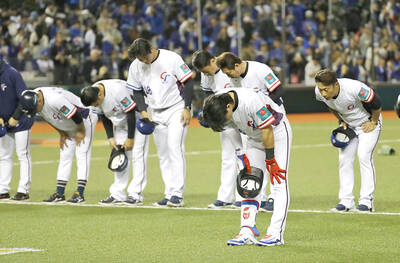Sri Lankan cricket authorities have confirmed their tour to Pakistan next month and February, a Pakistan Cricket Board (PCB) official said yesterday.
Pakistan had invited Sri Lanka to play three Tests, three one-day internationals and a Twenty20 game after the Indian government refused to permit its team to undertake their Test tour of Pakistan from next month.
India called off the tour on Thursday amid simmering tension between the nuclear-armed neighbors over the militant attacks in Mumbai last month.
“Sri Lanka has agreed in principle to tour for the series. We are now working out the final details ... of the tour with them,” said Saleem Altaf, chief operating officer of the PCB.
Altaf said the president of the Sri Lankan board, Arjuna Ranatunga, had sent his consent for the tour after Pakistan invited them for the unscheduled series.
“Sri Lanka will travel to Pakistan straight from Bangladesh where their tour ends in the third week of January,” Altaf said.
He said Sri Lanka would start off with a Twenty20 game and a one-day international in Karachi and then play two one-day games and a Test in Lahore.
Meanwhile, former Test captains Imran Khan and Wasim Akram joined the local media yesterday in hitting out at India’s decision to cancel next month’s tour.
The 1992 World Cup-winning captain Khan said India’s decision exposed its “double standards” as it did everything to convince England to return to India and play two Tests after the attacks.
“If the Indian team had toured Pakistan it would have given a clear message to the terrorists that players and people of both countries have not bowed in front of them,” Khan was quoted in the urdu Daily Express. “It was the reason that England returned to India.”
Another former skipper Akram, who played with Khan in the 1992 World Cup, hoped that cricket ties between the neighboring countries would soon be revived.
“I had thought that India would not mix cricket with politics, but after this [cancellation] one should hope that it’s a temporary phase,” Akram said.

Team Taiwan are set to face Spain in a win-or-go-home match tonight for the final berth at the 2026 World Baseball Classic (WBC), despite losing to Nicaragua 6-0 in the WBC qualifier at the Taipei Dome on Sunday. The home team’s loss on Sunday means Nicaragua finish first in the qualifier round in Taipei with a perfect 3-0 record and advances to next year’s finals. After crushing South Africa 9-1 earlier on Sunday, Spain took second place in the four-team qualifier with a 2-1 record. With a 1-2 record, Taiwan finished third while South Africa placed at the bottom with

Team Taiwan avoided missing the World Baseball Classic (WBC) for the first time by defeating Spain 6-3 in a do-or-die game in Taipei last night. After narrowly escaping a mercy-rule loss to Spain in the WBC Qualifiers opener on Friday last week, the home team — winner of last year's WBSC Premier12 title three months ago — got their revenge against the 2023 European champions at Taipei Dome. "It felt quite different from when we won the Premier12," Taiwan captain Chen Chieh-hsien (陳傑憲) said after the game, recalling the ups and downs the team has experienced over the past few days. Unlike in

LONG TIME COMING: With the addition of Marcus Smart, the Washington Wizards finally held a team to under 100 points, the last team this season to do so The Detroit Pistons on Monday won their seventh straight game in the NBA with in-form Cade Cunningham making 32 points and grabbing nine rebounds in a 106-97 win over the Los Angeles Clippers. The Pistons, who are in the playoff position, moved to 32-26, their best record at this stage of a season for 17 years. It was an all-round effort from Detroit with Tobias Harris adding 20 points and Jalen Duren making 19 rebounds along with his 12 points. It was a tight contest until Detroit pulled away late in the third quarter to tie their longest winning streak since the 2014-2015

Soccer fans in England and Wales might be allowed to spend more time in pubs if their teams go far at the UEFA European Women’s Championship being held in Switzerland in July. The British government is launching a four-week consultation to discuss whether pubs can extend their opening hours from 11pm to 1am should England or Wales reach the semi-finals or final of Euro 2025. The British secretary of state for the home department has the power to extend licensing hours for occasions of “exceptional international, national or local significance,” the government said on Monday. England’s women’s team — whose players are nicknamed